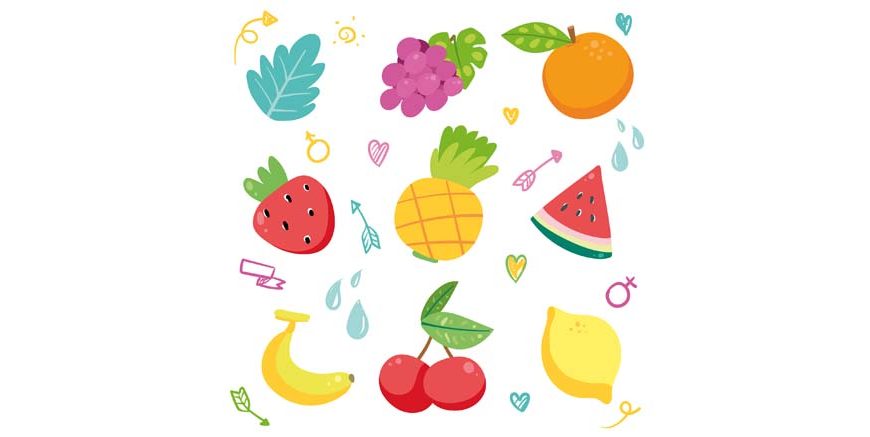Introducing solid foods to your baby is an exciting milestone, and fruits are often one of the first foods parents introduce. Not only are they delicious, but they also pack a punch of essential nutrients crucial for your baby’s growth and development. However, navigating the world of baby fruits can be daunting, especially for new parents. To simplify this journey, we’ve compiled a comprehensive baby fruit guide, including a baby fruit chart, the best fruits for babies, when to start fruits for babies, and even a delightful baby fruit salad recipe.
Baby Fruit Chart: Understanding Nutritional Needs
Before diving into the best fruits for babies, it’s essential to understand their nutritional needs. In the early stages of development, babies require a variety of nutrients to support their growth and development. Fruits offer an array of vitamins, minerals, and antioxidants crucial for their health.
When selecting fruits for your baby, opt for varieties that are rich in essential nutrients such as:
- Vitamin C: Crucial for immune function and iron absorption.
- Vitamin A: Essential for vision and immune health.
- Potassium: Supports heart health and proper muscle function.
- Fibre: Aids in digestion and helps prevent constipation.
- Antioxidants: Protect cells from damage and support overall health.
Keep in mind that while fruits are nutritious, they should complement a balanced diet that includes a variety of food groups.
Best Fruits for Babies: Nutrient-Rich Options
Now that we understand the nutritional needs of babies, let’s explore some of the best fruits to include in their diet:
- Bananas:
- Avocado:
- Apples :
- Pears :
- Peaches :
- Mangoes :
- Berries :
Rich in potassium and easily digestible, bananas are often a favourite among babies. They can be mashed or cut into small pieces for easy consumption.
Although technically a fruit, avocados are rich in healthy fats, making them an excellent choice for brain development. Mash ripe avocado for a creamy and nutritious treat.
High in vitamin C and fibre, apples are a versatile fruit for babies. Consider steaming and pureeing them for younger babies or offering thinly sliced, cooked apple pieces for older ones.
Pears are gentle on the stomach and offer a sweet flavour that babies enjoy. Steam and puree ripe pears or offer thin slices for older babies practising self-feeding.
Rich in vitamins A and C, peaches are a summertime favourite. Choose ripe, soft peaches and puree them for younger babies or offer small, soft pieces for older ones.
Bursting with flavour and vitamin C, mangoes are a tropical treat for babies. Puree ripe mango or offer small, diced pieces for older babies to explore.
While some parents may be hesitant to introduce berries due to their small size, they are packed with antioxidants and essential nutrients. Opt for soft varieties like blueberries or raspberries and mash them for younger babies or offer whole, larger pieces for older ones.
When to Start Fruits for Babies: Introducing Solids Safely
One of the most common questions parents have is when to start fruits for babies. According to the American Academy of Pediatrics (AAP), it’s generally recommended to introduce solid foods, including fruits, around six months of age. At this stage, babies show developmental signs of readiness for solids, such as the ability to sit up with support and showing interest in food.
However, every baby is unique, and readiness for solids can vary. Some babies may show signs of readiness earlier, while others may need more time. It’s essential to consult with your paediatrician before introducing solids and to watch for cues of readiness in your baby.
When introducing fruits for the first time, start with single-ingredient purees and offer small amounts to gauge your baby’s tolerance and preferences. Monitor for any signs of allergies or digestive issues, and gradually introduce a variety of fruits to expand their palate.
Baby Fruit Salad: A Delicious and Nutritious Option
As your baby becomes accustomed to eating solid foods, you may want to explore more complex flavours and textures. A baby fruit salad is a delightful option that combines a variety of fruits into a colourful and nutritious dish. Here’s a simple recipe to try:
Ingredients:
– 1 ripe banana, mashed
– 1 ripe pear, peeled and diced
– 1/2 cup diced strawberries
– 1/2 cup blueberries
– 1/2 cup diced mango
– Optional: a squeeze of fresh lemon juice to prevent browning
Instructions:
- In a small bowl, mash the ripe banana until smooth.
- Add the diced pear, strawberries, blueberries, and mango to the bowl.
- Gently toss the fruits together until well combined.
- If desired, squeeze a bit of fresh lemon juice over the fruit salad to prevent browning.
- Serve the baby fruit salad immediately or refrigerate for later use.
This baby fruit salad is visually appealing and packed with essential nutrients to support your baby’s growth and development. Feel free to customise the recipe with your baby’s favourite fruits or adjust the texture as needed.
Introducing fruits to your baby’s diet is an exciting journey that lays the foundation for healthy eating habits later in life. By understanding your baby’s nutritional needs, selecting the best fruits, and following safe feeding practices, you can provide them with a diverse and nutritious diet. Whether you’re following a baby fruit chart or whipping up a delicious baby fruit salad, the key is to offer a variety of flavours and textures to support their growth and development. Enjoy exploring the world of fruits with your little one and savouring every moment of this precious journey.
For more such interesting blogs, visit EuroKids.















